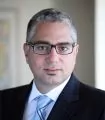Upending the longstanding approach of the most active local prosecutors in the nation, the California Court of Appeal has ruled that local prosecutors (district attorneys, county counsel, and city attorneys) cannot recover monetary relief for violations of California's expansive unfair competition laws (UCL) that occur outside of their territorial jurisdictions. Abbott Laboratories v. Superior Court, No. D072577 (4th App. Dist. May 31, 2018).
Abbott holds that a local prosecutor's authority to seek monetary relief under the UCL is limited to the geographic boundaries of his or her territory because, unlike the California Attorney General who is the "chief law officer" of the state,1 local prosecutors do not have plenary powers with respect to civil actions. This is significant because section 17204 of the Business and Professions Code provides that public enforcement UCL actions may be initiated by local prosecutors "in the name of the people of the State of California upon their own complaint," and many local prosecutors have sought to obtain monetary relief for statewide violations on that basis.
The Facts in Abbott
In Abbott, the Orange County District Attorney brought a UCL action "in the name of the people of the State of California" against several pharmaceutical companies for their alleged efforts to prevent the launch of a generic version of Niaspan, a cholesterol medication. The Orange County District Attorney alleged that this conduct caused purchasers throughout California to overpay for the drug, and sought an injunction, restitution, and civil penalties of up to $2,500 per violation, for violations that occurred across the state.
The pharmaceutical companies moved to strike from the complaint all claims for monetary relief based on violations that occurred outside of Orange County. They argued that, under People v. Hy-Lond Enterprises, Inc.,2 the Orange County District Attorney did not have the power to seek relief for violations outside of Orange County, and that under the California Constitution, the Attorney General is the only prosecutor with such power. The Orange County District Attorney argued that Hy-Lond did not apply because the issue there was whether a stipulated judgment, between a local prosecutor (made with the approval of the state agency that regulates the conduct at issue) and a defendant, binds other prosecutors and the California Attorney General. The District Attorney noted that Hy-Lond did not address the power of a local prosecutor to seek statewide relief or the power granted to local prosecutors to seek relief "in the name of the people of the State of California," under section 17204 of the Business and Professions Code. The trial court agreed with the Orange County District Attorney and denied the motion to strike.
The Court of Appeal's Ruling
The court of appeal issued a writ vacating the trial court's order. The court held that while the UCL granted standing to local prosecutors to bring claims "in the name of the people of the State of California," it "cannot reasonably or constitutionally be interpreted as conferring statewide authority or jurisdiction to recover such monetary remedies beyond the county the district attorney serves, or restricting the Attorney General's constitutional power to obtain relief on behalf of the entire state.3 Any contrary interpretation would allow a district attorney to keep for his or her own county's treasury all of the monetary relief obtained for statewide violations, and "would bind the state under principles of res judicata and collateral estoppel, and prevent the Attorney General and other district attorneys from seeking further relief for violations occurring in their own communities.4
The court noted, however, that a local prosecutor could increase his or her territorial reach by entering "into agreements with the Attorney General or sister district attorneys.5 That way the local prosecutor could, in the event of an agreement with an Attorney General, seek monetary recovery for statewide violations or, in the event of an agreement with other prosecutors, seek monetary relief for the territories covered by all of the agreeing prosecutors.
Significantly, the court of appeal did not address what constitutes a "violation" for the purpose of assessing civil penalties or provide guidance on how to determine where the violation occurred for the purpose of determining whether a local prosecutor has the power to seek monetary relief.6 The Court also did not address the question of "[w]hether the UCL empowers a district attorney to obtain statewide injunctive relief," which was not raised in the case.7
Implications
Abbott should lower the stakes (and recoveries) in UCL enforcement actions brought by local prosecutors because fewer violations should, in theory, occur within the territory of the local prosecutor. In addition, the decision may chill local prosecutors' appetites to file such claims given that recoveries may be more limited.
On the other hand, defendants in UCL enforcement actions may also be less willing to resolve such actions (absent co-prosecution agreements with the Attorney General)8 since a settlement would not absolve the defendant of statewide liability and would leave it open to copycat actions from other prosecutors who believe violations also occurred in their territories. This in turn could lead to litigation concerning "where" a violation occurred, particularly in light of Abbott's silence on that issue.
Footnotes
1 Cal. Const., art. 3, § 13.
2 93 Cal. App. 3d 734 (1979) (holding that stipulated judgment between a district attorney and a defendant does not bind the Attorney General or other district attorneys that did not participate in the action).
3 Abbott, No. D072577, at 29.
4 Id. at 29-30.
5 Id. at 37.
6 Id. at 33 n.15.
7 Id. at 33 n.14.
8 In order to avoid splitting recovery with private counsel, the Attorney General may be unwilling to enter into co-prosecution agreements where local prosecutors have co-counseled with private contingency lawyers.
The content of this article is intended to provide a general guide to the subject matter. Specialist advice should be sought about your specific circumstances.



